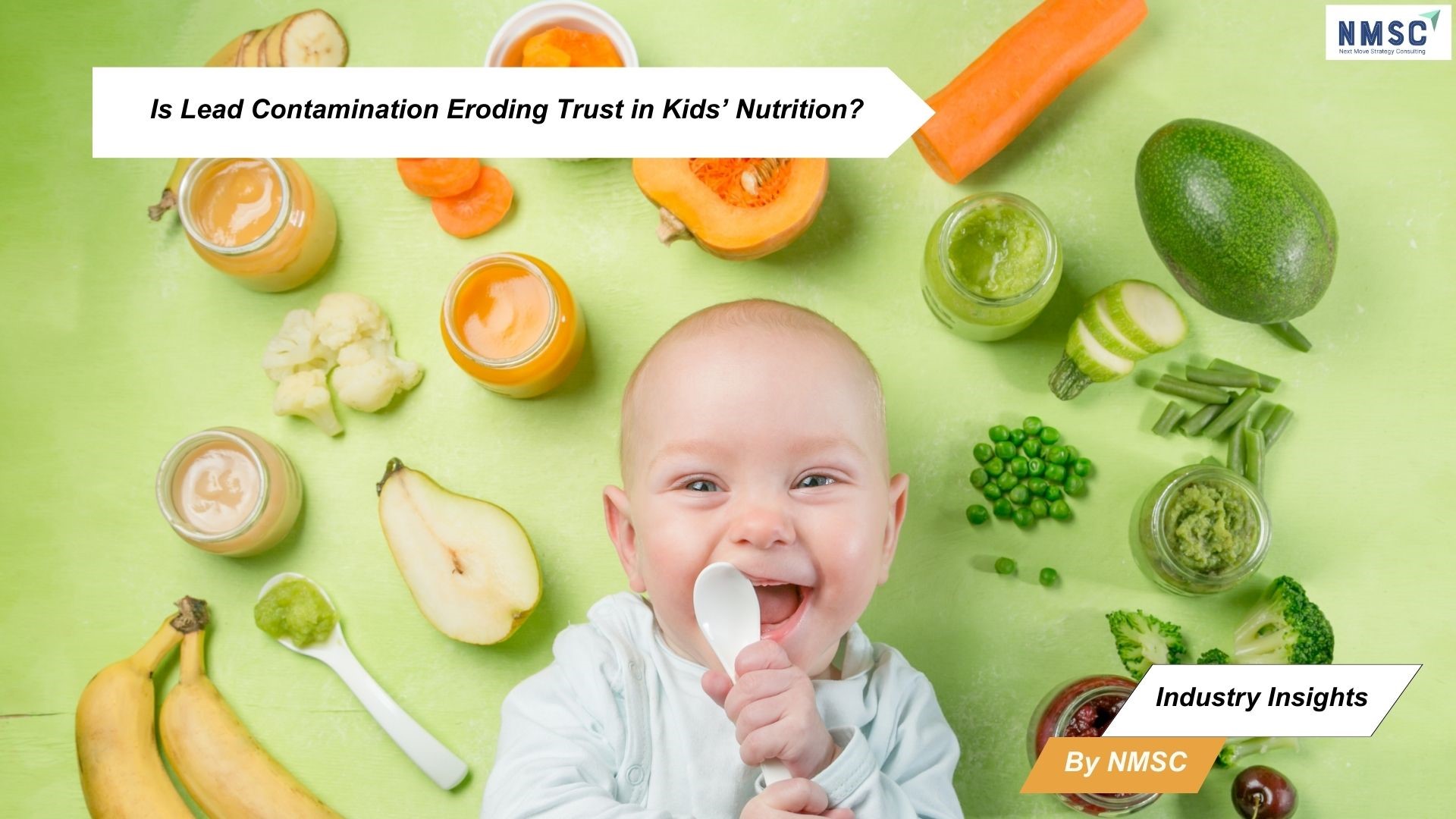Is Lead Contamination Eroding Trust in Kids’ Nutrition?
Published: 2025-09-22

Industry Insights from Next Move Strategy Consulting
Amid growing parental demands for safe, organic options in children's feeding products, a voluntary recall by Sprout Organics highlights persistent vulnerabilities in the kids nutrition supply chain. The action targets a specific lot of vegetable-based pouches potentially tainted with lead, underscoring the sector's ongoing battle to balance convenience with rigorous safety protocols in an era of heightened health awareness.
What Prompted Sprout Organics' Urgent Product Withdrawal?
Routine testing has exposed a critical flaw in one batch of the brand's offerings, prompting swift intervention to protect young consumers. This development arrives as families increasingly rely on portable, nutrient-dense foods to support early developmental needs, yet face intermittent disruptions from quality control lapses.
"Elevated levels of lead may be present," the company stated in its announcement, emphasizing the precautionary nature of the measure. Distributed primarily through select retail channels, the affected items represent a fraction of the broader inventory but signal broader challenges in sourcing and processing organic ingredients for infant diets.
Key Recall Specifications at a Glance:
-
Product Details: 3.5-ounce pouches of Sweet Potato Apple and Spinach.
-
Identification Markers: Lot code 4212; expiration date October 29, 2025.
-
Distribution Scope: Available at Walgreens and independent stores in the U.S. Southern region, with most sales between September and December 2024.
-
Consumer Guidance: Return items to point of purchase for full refund; no confirmed health incidents to date.
-
Recall Classification: Voluntary, initiated post-sampling without reported adverse effects.
What Health Implications Arise from Lead Exposure in Infant Foods?
Even minimal contact with lead can elevate blood levels in vulnerable populations, particularly during formative growth stages. The agency overseeing the matter warns that prolonged or intense exposure heightens risks, varying by dosage, duration, and individual factors like age and size.
Chronic intake in young children may impair cognitive progress, behavioral patterns, and overall physical milestones, amplifying the stakes for products positioned as foundational to healthy eating habits. This recall serves as a reminder that while such incidents remain isolated, their ripple effects demand vigilant monitoring across the nutritional ecosystem.
Why Do Repeated Baby Food Alerts Signal Deeper Sector Pressures?
This episode follows a string of similar actions earlier in the year, revealing a troubling trend in vegetable purees and fruit blends marketed for toddlers. In May, a regional grocer withdrew its pear, kiwi, spinach, and pea variant after detecting comparable impurities, with communications confirming zero illness cases. Mere months prior, a national chain pulled over 25,000 units of a pea, zucchini, kale, and thyme puree, categorized as posing reversible rather than severe threats.
These successive events, confined to Class II designations, nonetheless erode confidence in ready-to-eat formats that dominate convenience-driven segments of kids nutrition. As formulations evolve to meet demands for allergen-free and plant-based profiles, the frequency of such withdrawals points to complexities in global sourcing and testing regimes.
How are These Recalls Reshaping Dynamics in the Kids Nutrition Landscape?
Incidents like the Sprout Organics withdrawal are accelerating shifts toward fortified transparency and third-party certifications in the kids nutrition arena. Parents, already navigating options amid economic and lifestyle constraints, may pivot to verified alternatives, pressuring brands to invest in advanced contaminant screening and sustainable supply networks.
This could elevate operational costs for smaller players while favoring established firms with robust compliance frameworks, ultimately fostering a more resilient but fragmented market valued for its emphasis on preventive quality assurance. Analysts observe that such pressures are spurring innovation in low-risk packaging and traceable ingredients, potentially boosting long-term consumer loyalty despite short-term sales dips.
Fortifying Pathways to Safer Childhood Nourishment
In a domain where every serving influence lifelong wellness trajectories, the Sprout Organics recall reinforces the imperative for unyielding standards in kids nutrition. By prioritizing detection and rapid remediation, stakeholders can mitigate hazards and sustain the sector's role as a pillar of family health.
This vigilance not only averts immediate risks but cultivates enduring trust, enabling the market to thrive through proactive adaptations that align innovation with impeccable safety.
Source: The Independent
Prepared By: Next Move Strategy Consulting
About the Author
 Sneha Chakraborty, a skilled SEO Executive and Content Writer with over 4 years in digital marketing, excels in boosting online visibility and engagement with data-driven strategies and compelling content. Passionate about simplifying digital ideas, she enjoys reading, sketching, and nature photography.
Sneha Chakraborty, a skilled SEO Executive and Content Writer with over 4 years in digital marketing, excels in boosting online visibility and engagement with data-driven strategies and compelling content. Passionate about simplifying digital ideas, she enjoys reading, sketching, and nature photography.
About the Reviewer
 Sanyukta Deb is a skilled Content Writer and Digital Marketing Team Leader, specializing in online visibility strategies and data-driven campaigns. She excels at creating audience-focused content that boosts brand presence and engagement, while also pursuing creative projects and design interests.
Sanyukta Deb is a skilled Content Writer and Digital Marketing Team Leader, specializing in online visibility strategies and data-driven campaigns. She excels at creating audience-focused content that boosts brand presence and engagement, while also pursuing creative projects and design interests.
















Add Comment